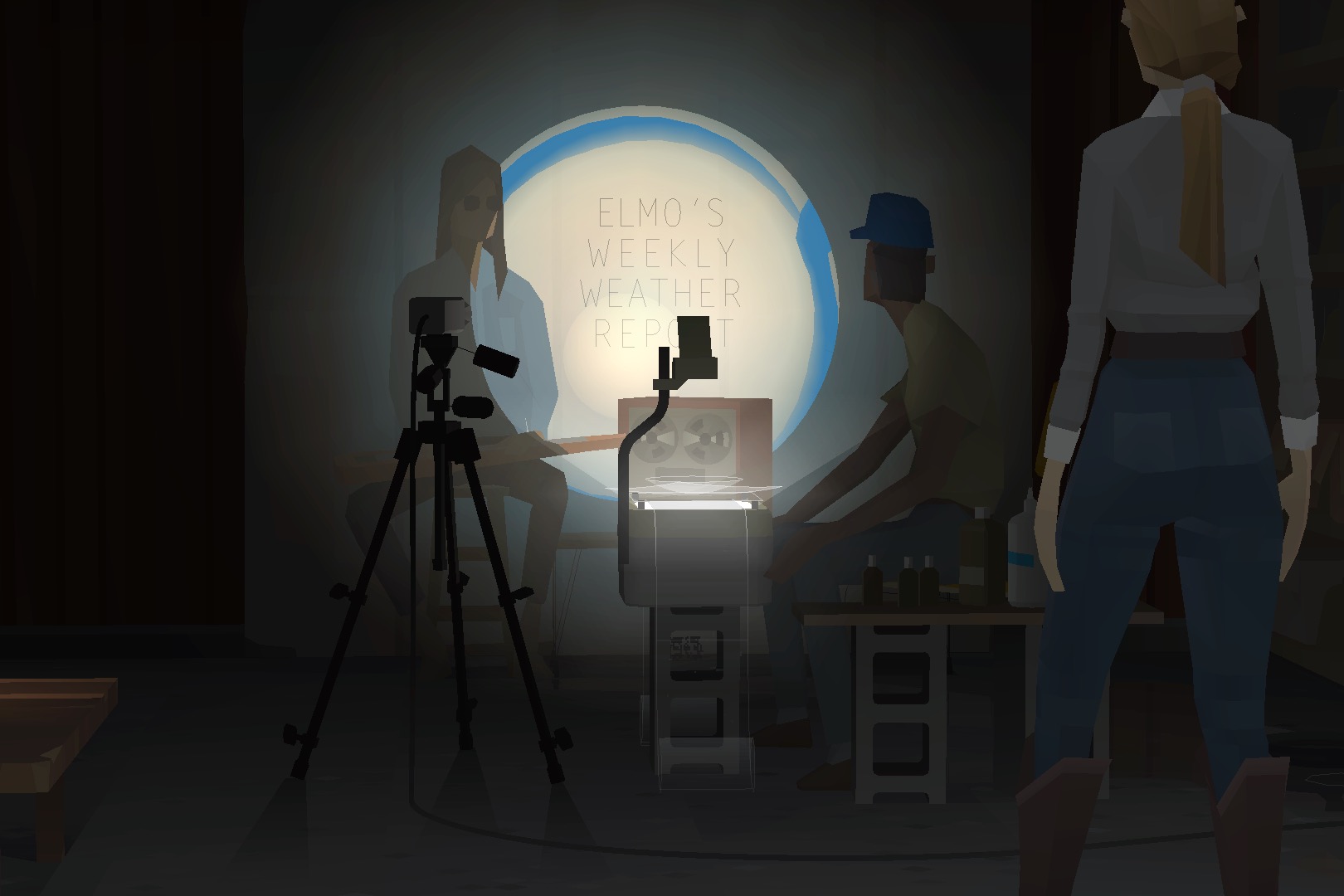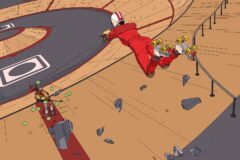For a musician who hasn’t really been interested in playing video games since he was a kid with a Nintendo 64, Ben Babbitt has certainly done a great job at carving out a spot for himself within the industry.
Alongside his career touring and recording his own material, working with other musicians (including major contributions to Angel Olsen’s All Mirrors), and more, the Illinois native and current Los Angeles-based musician gained significant attention for crafting the soundtrack and sound design for Cardboard Computer’s Twilight Zone-esque point-and-click adventure game, Kentucky Route Zero.
As a video game that took nearly a decade to develop and release, Babbitt’s journey to create the perfect soundtrack was far more complex than what he initially believed he was signing up for. In a game that’s largely based on text and environment, setting the appropriate mood for a creepy, silly, wondrous, or mysterious scene largely came down to finding the correct score to put behind it.
SPIN caught up with Babbitt to discuss his introduction to the video game industry, how it compares with his other musical projects and more.
SPIN: As a lifelong musician who isn’t really a gamer, what was the biggest change for you when working on a game like Kentucky Route Zero compared to making your own music?
Ben Babbitt: This game is really about telling the story, and music is always going to be a part of helping to do that in any medium. In making my own music, I’ve worked with narrative before — I mean any time you write a song, if there’s language and lyrics, then there’s a narrative element. But the difference is that [the narrative in a song is] not coming from an outside source, necessarily. It might be a reference to something, but [Kentucky Route Zero] was a full narrative world that had already been developed to a certain extent. Jake [Elliott] and Tamas [Kemenczy], the other collaborators on this project, really knew what the story was going to be about and had already mapped out the structure and locations and everything, so the music always had to be in reaction to those kinds of things. That evolved as we worked together for a long time, but in the beginning it was a lot of seeing what they did and reacting to it — even sometimes getting entire scenes to play through, react to, and write music for. Over time, we began working in tandem more, where I might be writing music just based on a conversation we had about a scene before we even started making it.
Now that your work on Kentucky Route Zero is complete, what other types of musical projects are you looking to get into?
Aside from the game and the other things that I do, I’m always making my own music. For the first few years of working on Kentucky Route Zero, I was still touring and performing. I haven’t done a lot of touring recently, but I always have a lot of music projects, and recently I’ve been doing a lot more work as a producer, collaborator, and arranger working with other people on their records. I’ve also started working in film a bit more. I’ve scored a feature and a couple of other projects recently, and I really enjoy that. I want to do more of all of those things. I’m working with Jake and Tamas on a new project, so as far as games go, I think my interest is strongest in collaboration with them, but I’m open to other things as well. After working on a collaborative project like this for so long, I’m excited to work on some of my own projects again too.
How did you balance working on a game of this magnitude with everything else you were doing at the time?
It was definitely a central presence and focus for me for a long time. Most of the time, the work on a record can be condensed into a much shorter period of time. You might spend a lot of time writing the material, but it’s possible to make a record very quickly as far as actual production. With a video game, it’s very time-consuming, and there’s just so much work that’s required, so it was difficult to find time for other projects and to keep nourishing my own creative interests as a musician. I ended up working all of the time in one way or another — which I like doing and works with my lifestyle since I don’t have kids or anything — but it’s always going to be a challenge to balance something like this with other projects.
Considering you started working on Kentucky Route Zero with basically no video game experience, what surprised you the most about it?
I had no idea what went into making a video game or even the music for a video game. I took over the role of sound design as well after the first episode, and when I started doing that I had no idea how much work that would be in and of itself. I think everything caught me off guard because I had no experience with anything like it. My expectations were based on information that was totally outdated because a video game to me at the time was Mario Kart or Zelda from the late ‘90s and early 2000s. I had no context of what any of it would mean.





